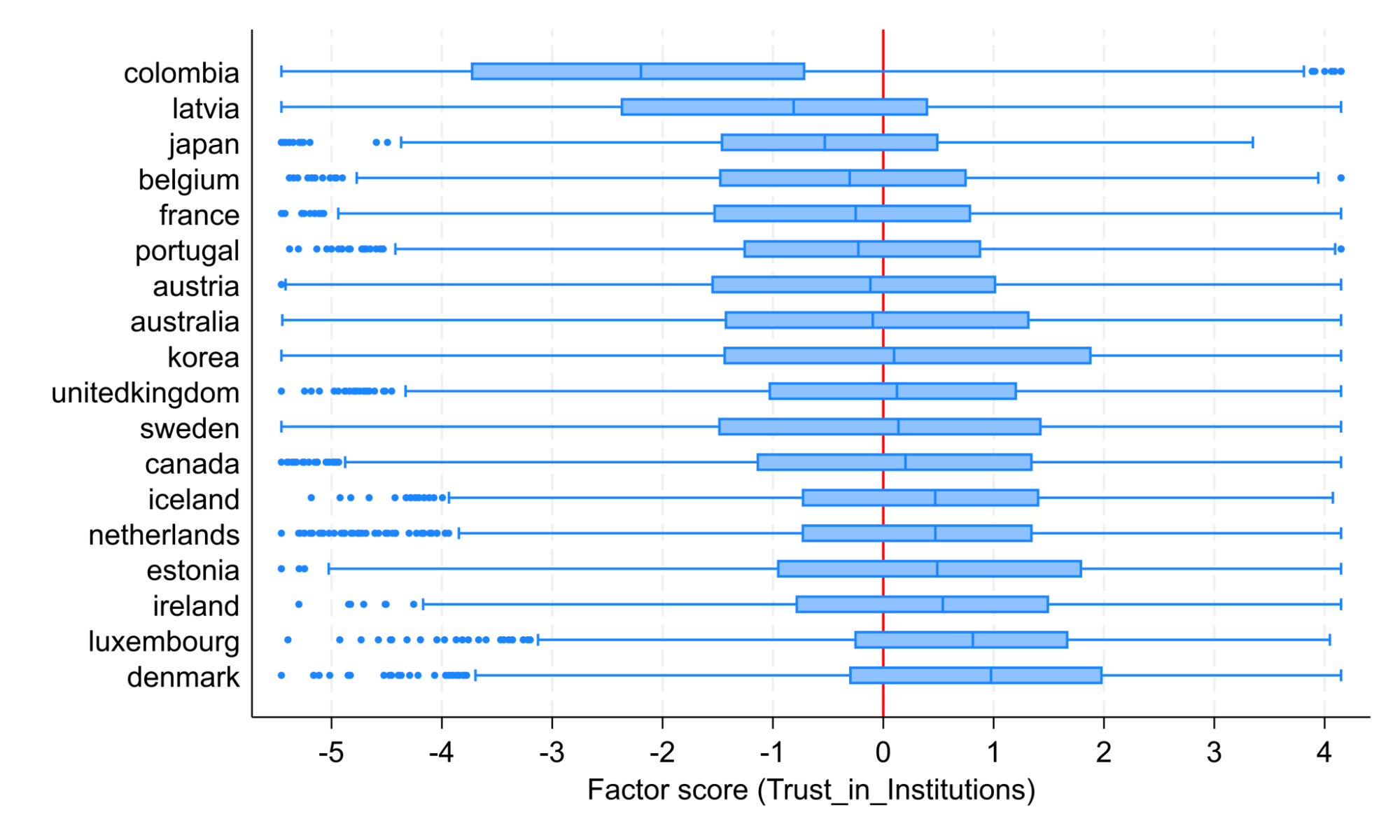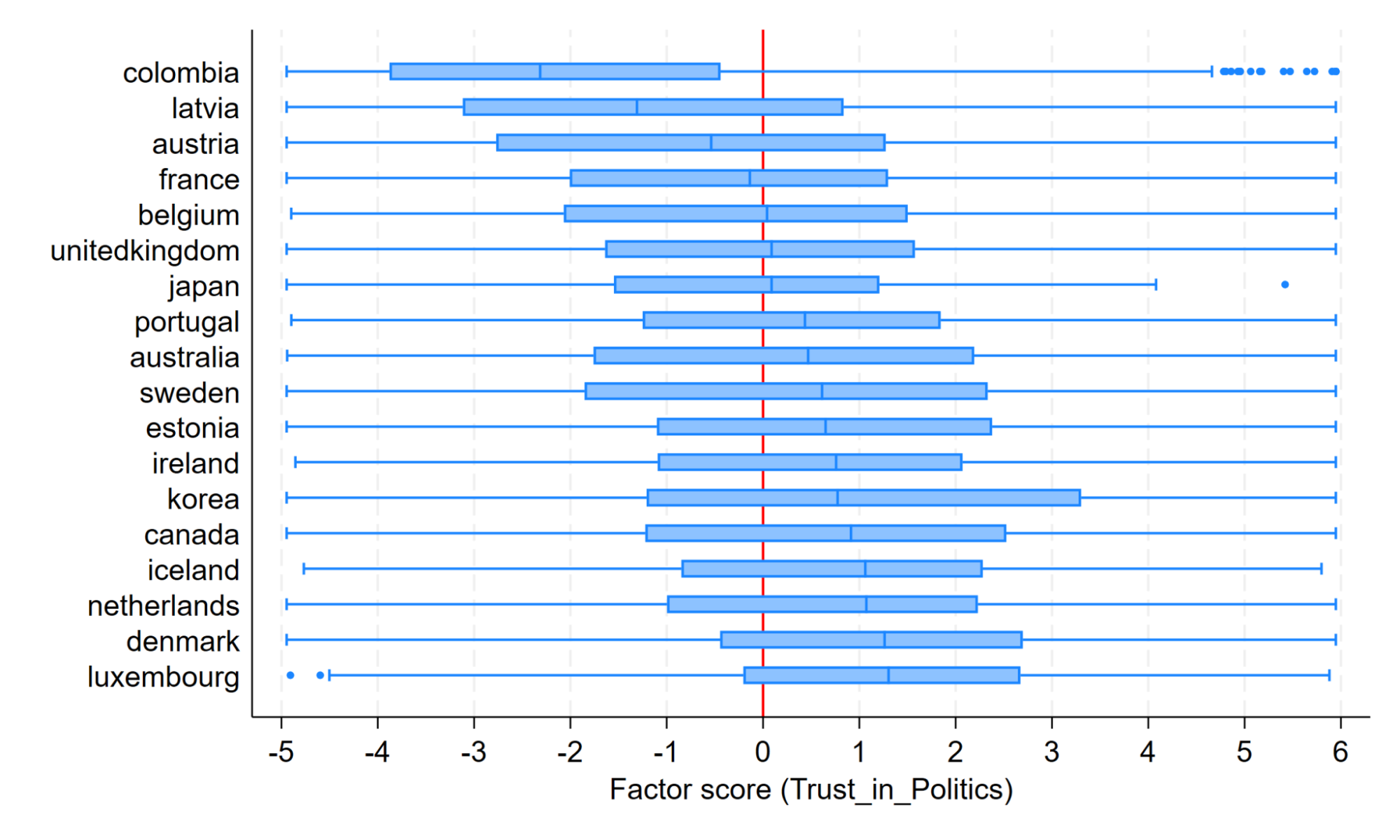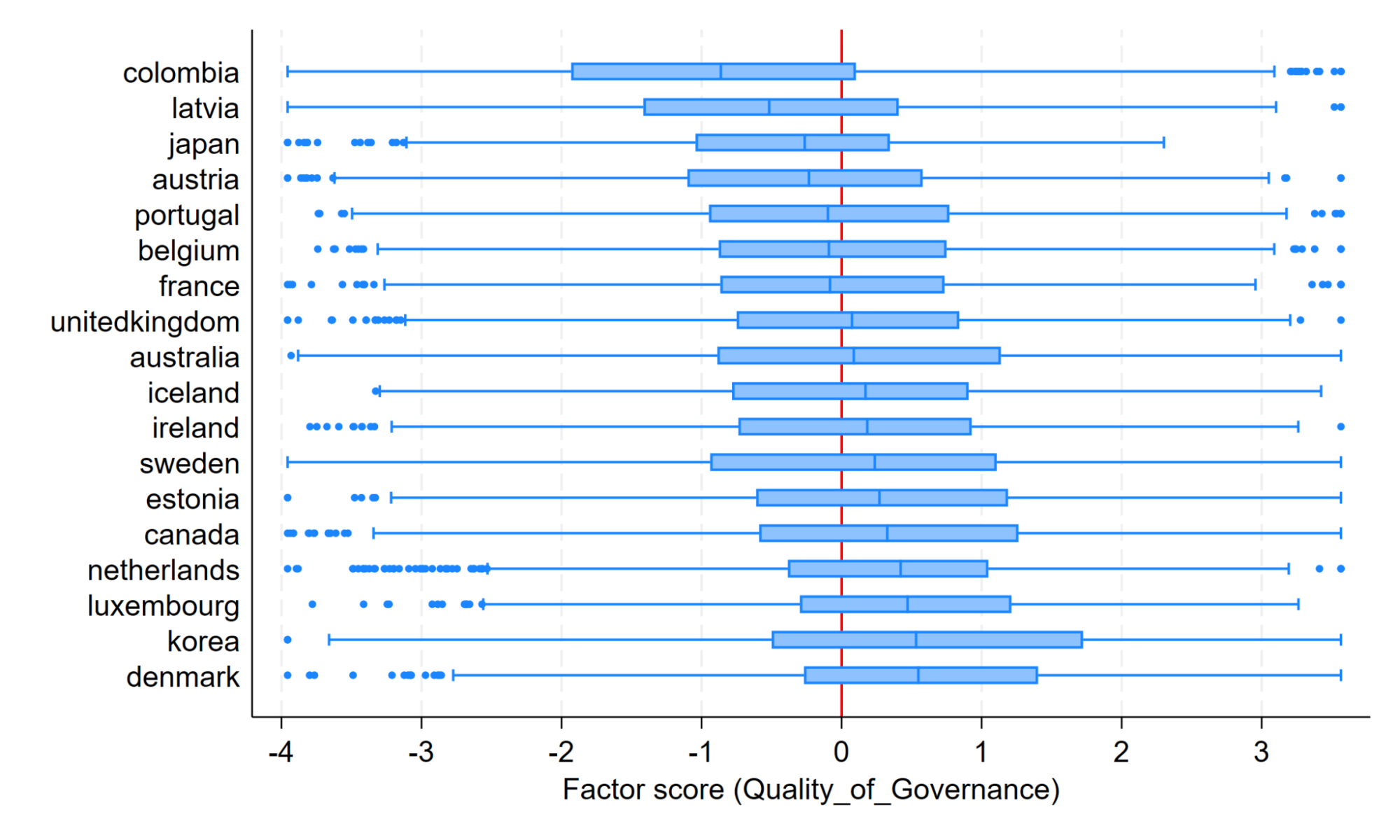Trust in official statistics and quality of governance strengthen trust in institutions and politics. Evidence from OECD survey on trust
Conference
65th ISI World Statistics Congress
Format: CPS Abstract - WSC 2025
Keywords: governance, institutional, oecd,, public politics, structural, trust
Session: CPS 68 - Enhancing Data Quality and Governance in Official Statistics
Monday 6 October 5:10 p.m. - 6:10 p.m. (Europe/Amsterdam)
Abstract
This study examines the determinants of trust in politics and trust in institutions using data from the OECD 2023 survey “Building trust to reinforce democracy”. In the first step, we conduct a confirmatory factor analysis to validate the latent constructs of trust in politics, trust in institutions, trust in statistics, and perceived quality of governance. The confirmatory model demonstrates strong factor loadings, providing a robust measurement framework for subsequent analysis. Building on this foundation, we use factor scores in multilevel regression models to assess how individual- and country-level determinants shape political and institutional trust. Trust in official statistics consistently emerges as one important predictor, ceteris paribus. Individuals who perceive public statistics as trustworthy, accessible and useful are more likely to express higher trust in institutions and politics. At macrolevel, Institutional trust is determined by GDP, political stability, and corruption intensity. These findings suggests that trust in statistics deserves to be heeded by safeguarding independence and transparency of the statistical system. Quality of governance, political stability and economic performance have a positive bearing on trust in institutions and politics, supporting democracy to some extent.
Figures/Tables
2 order_final

Boxplot trust_in_institutions3 on ctrnum3 aweight

Boxplot trust_in_politics3 on ctrnum3 aweight (1)

Boxplot quality_of_governance3 on ctrnum3 aweight

